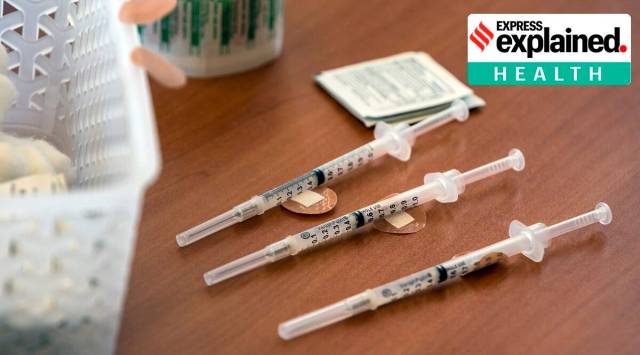Anonna Dutt is a Principal Correspondent who writes primarily on health at the Indian Express. She reports on myriad topics ranging from the growing burden of non-communicable diseases such as diabetes and hypertension to the problems with pervasive infectious conditions. She reported on the government’s management of the Covid-19 pandemic and closely followed the vaccination programme. Her stories have resulted in the city government investing in high-end tests for the poor and acknowledging errors in their official reports. Dutt also takes a keen interest in the country’s space programme and has written on key missions like Chandrayaan 2 and 3, Aditya L1, and Gaganyaan. She was among the first batch of eleven media fellows with RBM Partnership to End Malaria. She was also selected to participate in the short-term programme on early childhood reporting at Columbia University’s Dart Centre. Dutt has a Bachelor’s Degree from the Symbiosis Institute of Media and Communication, Pune and a PG Diploma from the Asian College of Journalism, Chennai. She started her reporting career with the Hindustan Times. When not at work, she tries to appease the Duolingo owl with her French skills and sometimes takes to the dance floor. ... Read More
Explained: What’s behind the protests over HIV medicine shortage?
People living with HIV have been protesting outside offices of the National AIDS Control Organisation (NACO) for five days. Why are they protesting?
 Around 50,000 people have been affected due to the shortage, according to the protesters. (AP Photo, Representational)
Around 50,000 people have been affected due to the shortage, according to the protesters. (AP Photo, Representational)People living with HIV have been protesting outside offices of the National AIDS Control Organisation (NACO) for five days, demanding that they receive medicines in a timely manner following shortages for nearly five months. Around 50,000 people have been affected due to the shortage, according to the protesters.
What led to the protests?
There has been a shortage of some medicines since March this year, owing to tenders by the Centre failing. The protest began on July 21 after centres even in the capital ran out of stock of one of the medicines, dolutegravir-50mg, for the three previous days.
“Over the last four or five months, several states have been experiencing shortages of one HIV medicine or the other due to procurement problems by NACO. Despite meetings with officials, the issue hasn’t been resolved. Now, even Delhi has run out of medicines. So, we have decided to sit in protest,” said Harishanker, who works with the Delhi Network of Positive People (DNP Plus). Harishanker said, “By their own admission, the drug supply issue of NACO is affecting 50,000 people across the country.”
An official from Delhi said, “Yes, there has been supply issue with medicines from NACO. But we did locally purchase around 3 lakh doses in March. Now, we have again placed an order with the delivery scheduled in the next 15 to 20 days.” The official added that the NACO supply is likely to arrive by the first week of August. “Even though there is a shortage, we have managed it such that people do continue to get their medicine even if for only five days at a time.”
Jai Prakash, who needs dolutegravir, said, “We will not end the protest until everyone across India is able to get the medicines in a timely manner and for one month at a time. A daily wage earner cannot afford to come to the hospital every five days to get the medicines.”
What medicines are unavailable?
The main shortage is of dolutegravir, used as part of the first-, second-, and third-line ART combinations. “NACO recommends dolutegravir as the preferred drug for treatment of HIV-positive adults, adolescents and children (aged more than 6 years with bodyweight more than 20 kg),” according to the 2021 guidelines for HIV care and treatment by the organisation.
There is also a shortage of nevirapine syrup that is given to infants with HIV. A baby born earlier this month at RML hospital was given syrup that is to expire in four days. “The hospital has said if they get fresh stock by, they will give new syrup. Otherwise, they said that the same medicine should be used,” said one of the protesters.
According to the networks of positive people, there is a stockout of at least one or more medicines across 12 states, most facing problems with paediatric and second and third lines of antiretrovirals.
Why is the shortage a concern?
While there is no cure for HIV infection, ART aims to reduce the replication of HIV and bring the viral load to undetectable levels. There has been a decline in mortality and illness resulting from HIV infection due to better availability of affordable and effective ART.
Continued suppression of the virus with the use of ART over time leads to reduction in the progression of HIV, the frequency of opportunistic infections, and increases lifespan and quality of life. If medicines are skipped, there is a possibility of the viral replication increasing and taking backwards the progress made in treatment.



- 01
- 02
- 03
- 04
- 05




































